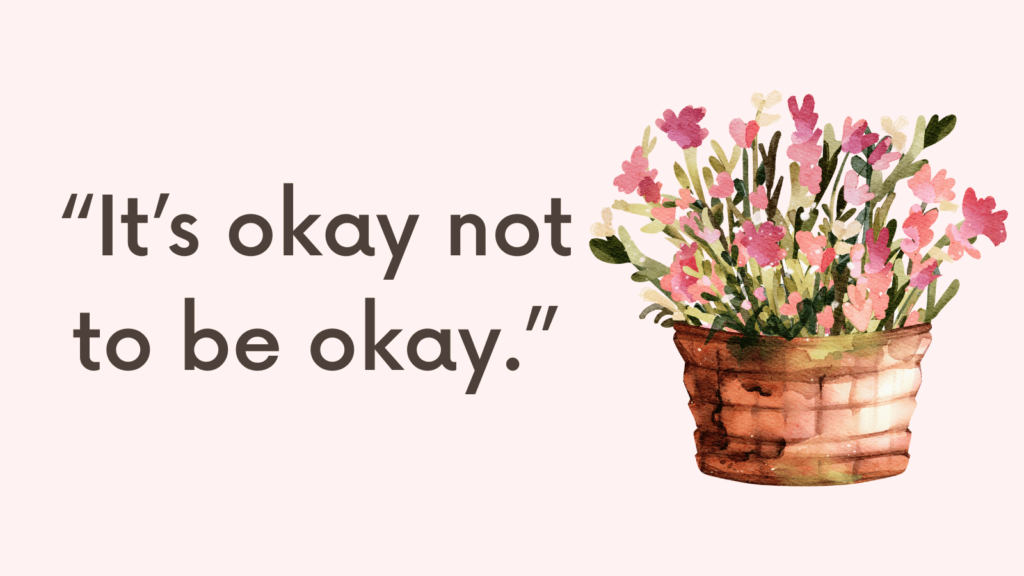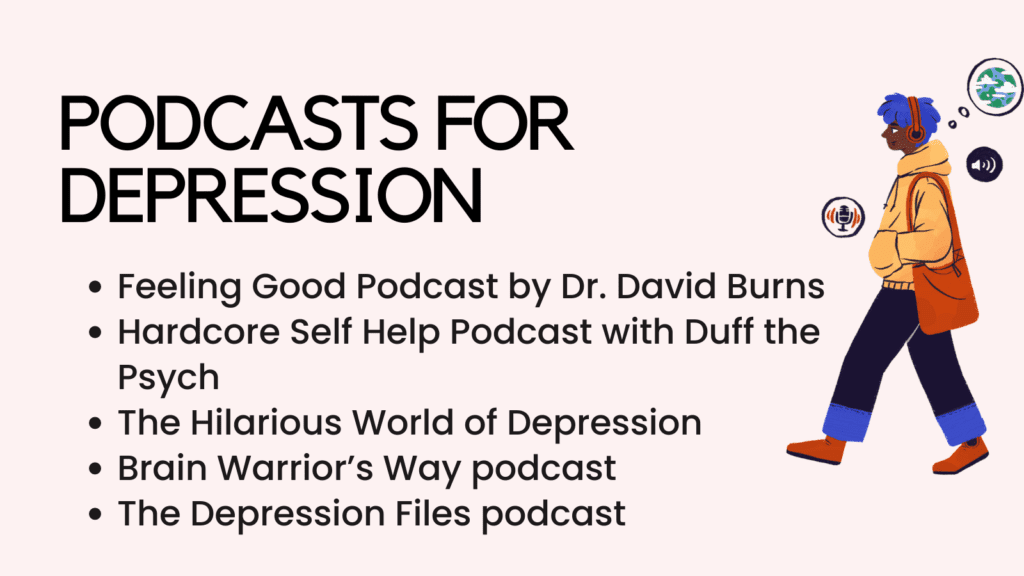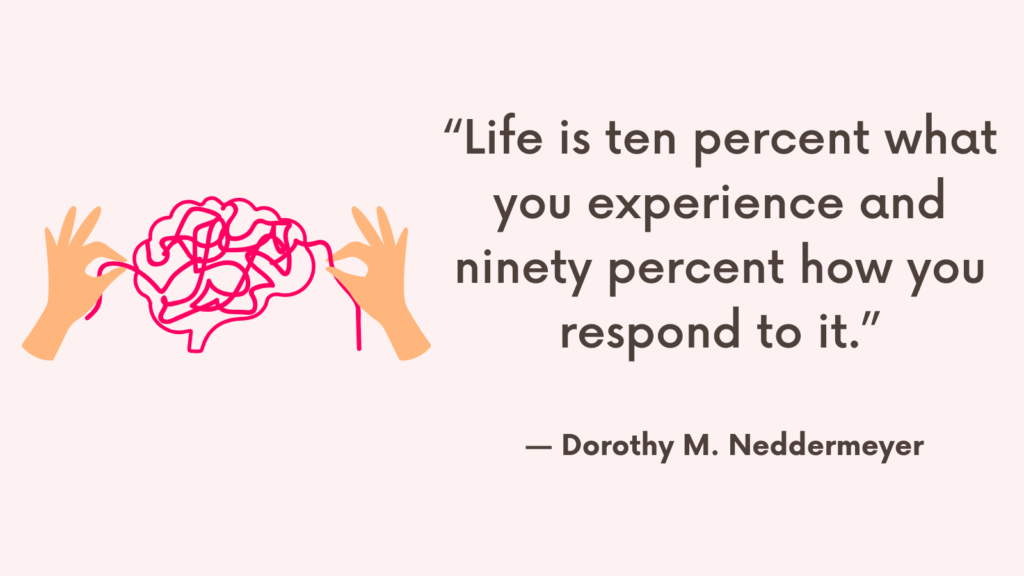In this post, you’re going to learn all about silent depression – its signs and how to overcome it.
What Is Silent Depression?
Silent depression, also known as high-functioning or hidden depression, is a form of depression where individuals experience depressive symptoms while appearing outwardly functional and maintaining their daily responsibilities.
Unlike typical depression, silent depression often goes unnoticed by both the person experiencing it and those around them.
Silent depression can be challenging to detect because individuals with this condition tend to hide or downplay their inner struggles due to various reasons, such as fear of judgment, societal expectations, or personal beliefs about mental health.
They may present themselves as happy, successful, and capable individuals while internally battling feelings of sadness, emptiness, and despair.
This form of depression may not necessarily align with the stereotypical image of someone who is visibly sad or disengaged.
Instead, individuals with silent depression may continue to carry out their regular activities, exhibit high levels of achievement, and maintain social relationships, making it difficult for others to recognize their inner turmoil.
It is important to note that silent depression can be just as debilitating and distressing as other forms of depression.
Individuals with silent depression may feel isolated, misunderstood, and overwhelmed by their internal struggles, as they often lack the support and validation necessary for recovery.
Related: High Functioning Depression Test (+Effective 3-Step Guide To Overcome High Functioning Depression)
Top 10 Signs of Silent Depression
Recognizing and understanding the signs and symptoms of silent depression is crucial to provide appropriate support and intervention.
1. Persistent Feelings of Sadness or Emptiness
Individuals with silent depression may experience a lingering sadness or an unexplained sense of emptiness.
Although they may continue to engage in activities and fulfill responsibilities, these feelings persist beneath the surface, impacting their emotional well-being.
2. Difficulty Expressing Emotions
A hallmark of silent depression is the difficulty expressing emotions openly.
Those affected may find it challenging to convey their inner turmoil and rely on various coping mechanisms, such as repressing emotions, putting on a social mask, or avoiding situations that might trigger deeper feelings.
Related: Do I Have Seasonal Depression Quiz (+Top 12 Natural Ways To Boost Your Mood)
3. Overachievement
Individuals with silent depression often strive for excellence and become high achievers in various aspects of their lives.
This overachievement can serve as a distraction or coping mechanism to mask internal struggles, making it harder for others to recognize their underlying depressive symptoms.
4. Persistent Fatigue and Low Energy
Though no physical illness is present, silent depression can manifest in chronic fatigue and low energy levels.
Individuals may find themselves constantly feeling tired, even after getting sufficient sleep, leading to decreased motivation and difficulties in maintaining regular daily activities.
Related: Journal Prompts For Depression (+FREE Depression Worksheets PDF)
5. Social Withdrawal
People with silent depression may gradually withdraw from social interactions, preferring to isolate themselves rather than seek support or share their struggles.
They may decline invitations, avoid gatherings, or make excuses to limit their exposure to others, creating an emotional barrier that reinforces feelings of loneliness and despair.
6. Irritability and Emotional Sensitivity
Silent depression can manifest in increased irritability and heightened emotional sensitivity.
Individuals may react strongly to minor stressors, displaying mood swings or becoming easily overwhelmed by emotions that would typically be manageable.
7. Perfectionism and Self-criticism
Silent depression is often accompanied by internalized perfectionism and self-criticism.
Individuals may hold excessively high standards for themselves, constantly berating themselves for perceived failures or shortcomings, and experiencing intense guilt or shame when they fall short of these expectations.
Related: Letting Go of Perfectionism: Best 20 Tips
8. Difficulty Concentrating and Making Decisions
Depression affects cognitive processes, and silent depression is no exception.
Individuals may struggle with concentration, memory recall, and decision-making.
This can lead to decreased productivity and performance in academic or professional settings, affecting their overall life satisfaction.
9. Physical Symptoms without Medical Explanation
Silent depression can manifest as physical symptoms such as headaches, digestive problems, muscle pain, or unexplained illnesses, even when there is no medical explanation.
These physical complaints may be the body’s way of expressing underlying emotional distress.
10. Increased Substance Use or Risky Behaviors
In an attempt to numb emotional pain or escape reality, individuals with silent depression may engage in increased substance use or risky behaviors.
This maladaptive coping mechanism further compounds their emotional and psychological distress.
Related: Top 10 Tips for Dating Someone with Depression

How to Overcome Silent Depression?
1. Seek Professional Help
The first step in overcoming silent depression is to seek support from a mental health professional.
A psychologist or therapist can provide a safe and non-judgmental space to explore and address your emotions effectively.
They can help identify the underlying causes of silent depression and guide you through evidence-based treatments such as cognitive-behavioral therapy (CBT), which focuses on modifying negative thought patterns and behaviors.
2. Build a Support Network
Creating a strong support network is essential for overcoming silent depression.
Reach out to trusted friends, family members, or support groups who can provide understanding and encouragement.
Sharing your experiences with others who have gone through similar struggles can alleviate feelings of isolation and provide a sense of validation.
3. Practice Self-Care
Engaging in self-care activities is crucial when dealing with silent depression.
Prioritize activities that bring you joy and relaxation, such as exercise, hobbies, meditation, or spending time in nature.
Taking care of your physical health by maintaining a balanced diet, getting enough sleep, and avoiding excessive substance use can also positively impact your mental well-being.
Related: Best 100 Self Care Affirmations To Honor Yourself
4. Establish Healthy Coping Mechanisms
Developing healthy coping mechanisms is important when dealing with silent depression.
Identify positive ways to manage stress and negative emotions, such as deep breathing exercises, journaling, or practicing mindfulness.
Engaging in activities that promote self-expression, like art or music, can also serve as effective outlets for processing and releasing emotions.
5. Challenge Negative Thinking Patterns
Silent depression often involves negative thinking patterns that can intensify feelings of sadness and hopelessness.
It’s crucial to actively challenge and reframe these negative thoughts.
Replace negative self-talk with positive and realistic affirmations.
Consider keeping a gratitude journal to remind yourself of the positive aspects of your life.
Related: Negative Core Beliefs List (& 8 Tips On How To Challenge Them)
6. Set Realistic Goals
Setting achievable goals can provide a sense of purpose and accomplishment, which is important in overcoming silent depression.
Break down larger tasks into smaller, manageable steps, and celebrate each achievement along the way.
However, be mindful of setting realistic expectations and avoiding self-criticism if you experience setbacks.
7. Foster Healthy Relationships
Nurturing healthy relationships plays a vital role in battling silent depression.
Surround yourself with supportive and understanding individuals who uplift and encourage you.
Openly communicating your needs and boundaries within relationships can help maintain a positive and supportive environment.
8. Practice Mindfulness and Relaxation Techniques
Mindfulness and relaxation techniques can help calm the mind, reduce stress levels, and promote overall well-being.
Engage in practices such as deep breathing exercises, progressive muscle relaxation, or guided imagery.
Regular practice can improve your ability to cope with challenging emotions and cultivate a greater sense of inner peace.
Related: Best 6 Mindfulness Exercises For Beginners (+FREE Resources)
9. Engage in Regular Exercise
Physical activity has been proven to have numerous benefits for mental health, including reducing symptoms of depression.
Engaging in regular exercise releases endorphins, which are natural mood elevators.
Find activities you enjoy, whether it’s walking, yoga, dancing, or team sports, and aim for at least 30 minutes of moderate-intensity exercise most days of the week.
Conclusion
Recognizing the signs of silent depression is crucial for early intervention and support.
It is important to remember that silent depression does not make one’s experiences any less valid or difficult.
Remember, everyone’s journey is unique, and what works for one person may not work for another.
Be patient with yourself, and don’t hesitate to reach out for the support you need.
With time, effort, and the right resources, it is possible to overcome silent depression and achieve emotional well-being.



